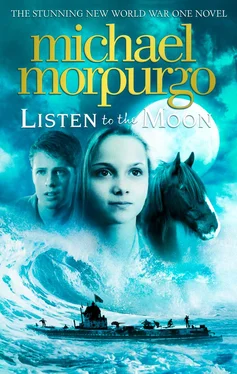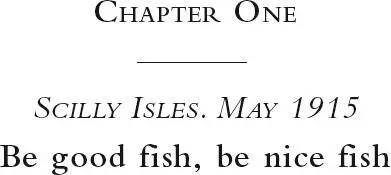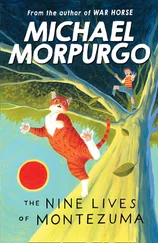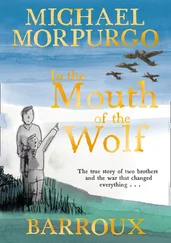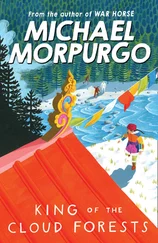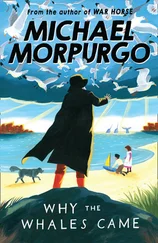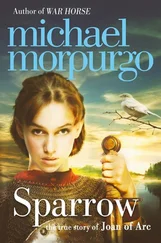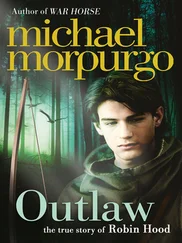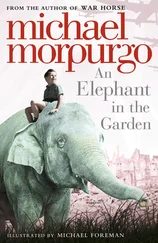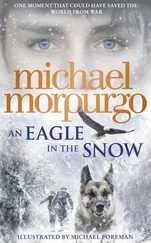
First published in hardback in Great Britain by HarperCollins Children’s Books 2014
HarperCollins Children’s Books is a division of HarperCollins Publishers Ltd
77–85 Fulham Palace Road,
Hammersmith, London W6 8JB
www.michaelmorpurgo.comfor news, videos, competitions, author interviews and more
Copyright © Michael Morpurgo 2014
Michael Morpurgo asserts the moral right to be identified as the author of this work.
A catalogue record for this book is available from the British Library.
All rights reserved under International and Pan-American Copyright Conventions. By payment of the required fees, you have been granted the non-exclusive, non-transferable right to access and read the text of this e-book on-screen. No part of this text may be reproduced, transmitted, down-loaded, decompiled, reverse engineered, or stored in or introduced into any information storage and retrieval system, in any form or by any means, whether electronic or mechanical, now known or hereinafter invented, without the express written permission of HarperCollins.
Source ISBN: 9780007339631, TPB ISBN 9780007339648
Ebook Edition © 2014 ISBN: 9780008104856
Version: 2014-09-18
For Philip and Jude
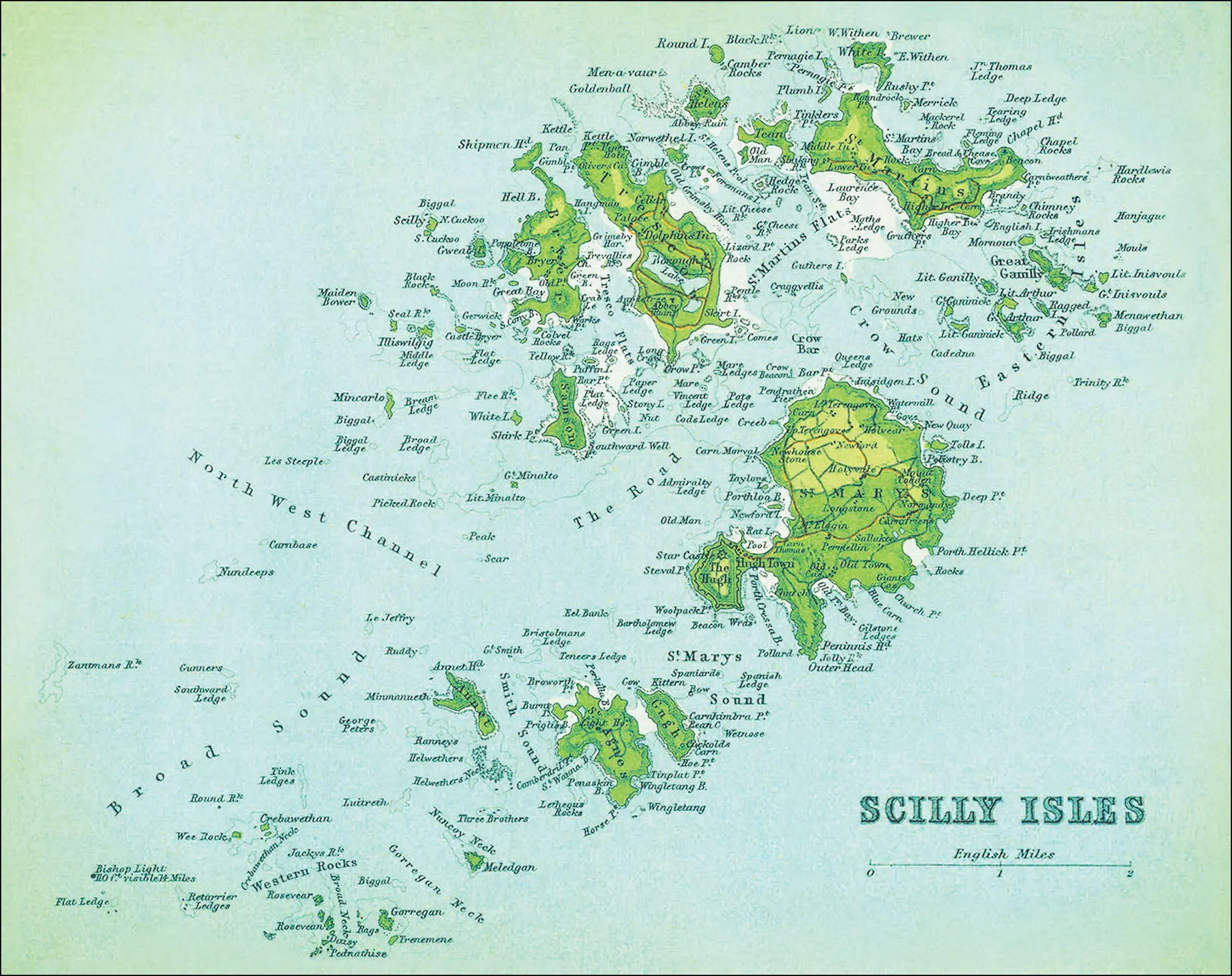
Contents
Cover
Title Page
Copyright
Dedication
Map
To Begin
Chapter One
Chapter Two
Chapter Three
Chapter Four
Chapter Five
Chapter Six
Chapter Seven
Chapter Eight
Chapter Nine
Chapter Ten
Chapter Eleven
Chapter Twelve
Chapter Thirteen
Chapter Fourteen
Chapter Fifteen
Chapter Sixteen
Chapter Seventeen
Chapter Eighteen
Chapter Nineteen
Chapter Twenty
Chapter Twenty-one
Chapter Twenty-two
Chapter Twenty-three
Chapter Twenty-four
Chapter Twenty-five
Chapter Twenty-six
Chapter Twenty-seven
Chapter Twenty-eight
To End
Read on
About the Publisher
WE ALL COME FROM SOMEWHERE. But, in a way, I come from nowhere. Let me explain. My grandma simply came up out of the sea a long time ago, like a mermaid, except that she had two legs instead of a fish tail. She seemed to be about twelve years old at the time, but no one could tell; and that was because there was no clue as to who she was, nor where she came from. She was half starved, mad with fever and could speak only one word: “Lucy”.
This is her story, as I later heard it told to me, by those who knew her best, by my grandpa, by other relations and friends, and, most importantly, by herself. Over the years I have pieced it all together as well as I could, using only the evidence of those who saw it with their own eyes, those who were there.
I want to thank the Museum of the Isles of Scilly for its help, for access to school logbooks and other sources, and especially the family of the late Dr Crow MD of St Mary’s, for allowing me to quote from his journal. My family, and many others also, too numerous to mention – on the Scilly islands, in New York and elsewhere – have helped me greatly and patiently in my research, in piecing everything together.
You could say this story has been a lifelong fascination for me, an obsession almost. I have certainly been working on it, on and off, for most of my life. I simply could not get it out of my head, which in a way, I suppose, is not surprising. It is my grandma’s story – much of it told, as you will discover, in her own words, as she dictated it to me. So, in that sense, it is my story too, my family’s story.
Grandma made us who we are – with a little help from Grandpa, it should be said. I am who I am because of her, because of him. I have done what I’ve done, been who I’ve been, lived where I’ve lived, written what I’ve written, because of them. So I have written it for them, and also because it happens to be the most unlikely and unbelievable story I have ever heard.
IT WAS MACKEREL THEY WERE looking for that day, because it was Friday. Mary always liked to cook mackerel for their supper on Fridays, but Alfie and Jim, his father, both knew she wouldn’t do it, and they wouldn’t have it, unless they brought her back enough mackerel to make a proper meal for all four of them. Alfie and his father had prodigious appetites, which his mother loved both to grumble about and to satisfy.
“I swear the two of you got hollow legs,” Mary would say in open admiration, as she watched them wolfing down their mackerel yet again – three of them each she liked to put on their plates, if the catch had been good enough.
There was Uncle Billy to feed too. He lived in the boat shed on Green Bay on his own, because he liked it that way. It was just across the field from Veronica Farmhouse, where they lived, a stone’s throw away. Mary would bring him his supper every evening, but, unlike Alfie, he would as like as not complain if it was mackerel again. “I like crab,” he’d say. But then if Mary brought him crab it was, “Where’s my mackerel?”
He could be contrary, could Uncle Billy. But then Uncle Billy was contrary in many ways. He was different from other people, different from anyone. As Mary often said, that was what made him special.
The fish were hard to find that morning. It helped keep spirits up in the boat to talk about supper, to think about it, about how Mary would cook the mackerel for them that evening: dipped in egg, rolled in oats, then seasoned with salt and pepper. She fried it always in butter. The smell of it would be wafting through the farmhouse and they’d be sitting down at the kitchen table, ready and waiting, mouths watering, savouring the sound and smell of the fish sizzling in the pan.
“Course, after she finds out what you and me have gone and done, Alfie,” Jim said, straining hard at the oars, “we could be on bread and water for a week. She will not be a happy woman, son, not happy at all. She’ll have my guts for garters, yours too.”
“We should go in closer to St Helen’s, Father,” Alfie said, his mind on the mackerel, not his mother’s retribution. “There’s fish there almost always, just off the beach. Caught half a dozen last time we were there, didn’t we?”
“Don’t like going near the place,” Jim said. “Never have. But maybe you’re right, maybe we should give it a go. Wish the wind would get up, and we could do a bit of sailing. All this rowing’s half killing me. Here, Alfie. Your turn.” They changed places.
As Alfie took up the oars, he found himself thinking of supper again, of the sound and the smell of frying mackerel, and then of how hard it was to remember smells and describe them, how sounds and sights were much easier to recall somehow. Once the mackerel was on the plate in front of them, they always had to wait until grace was said. Father and he were inclined to say grace rather too hurriedly for his mother’s liking. She took her time over it. For her, grace was a meant prayer, and different each mealtime, not simply a ritual to be rushed through. She would have liked a proper and respectful pause after the Amen, but Alfie and his father would be at their mackerel at once, like gannets. There would be strong, sweet tea and freshly baked bread to go with it, and bread-and-butter pudding, if they were lucky. It was always the feast of the week.
Читать дальше
